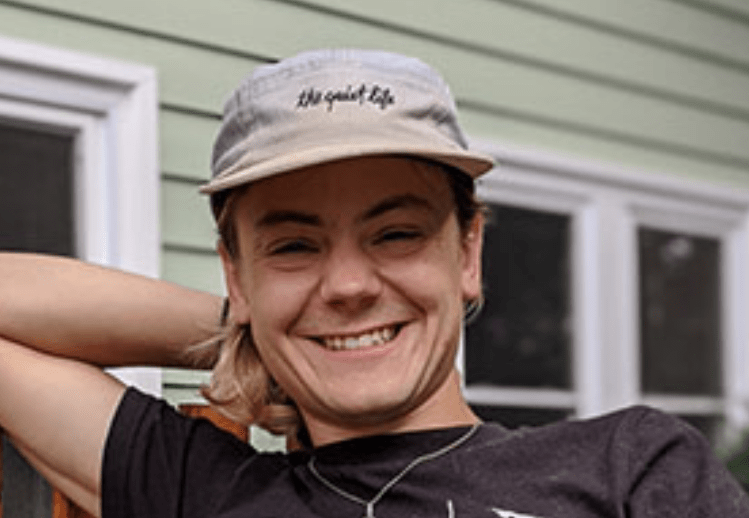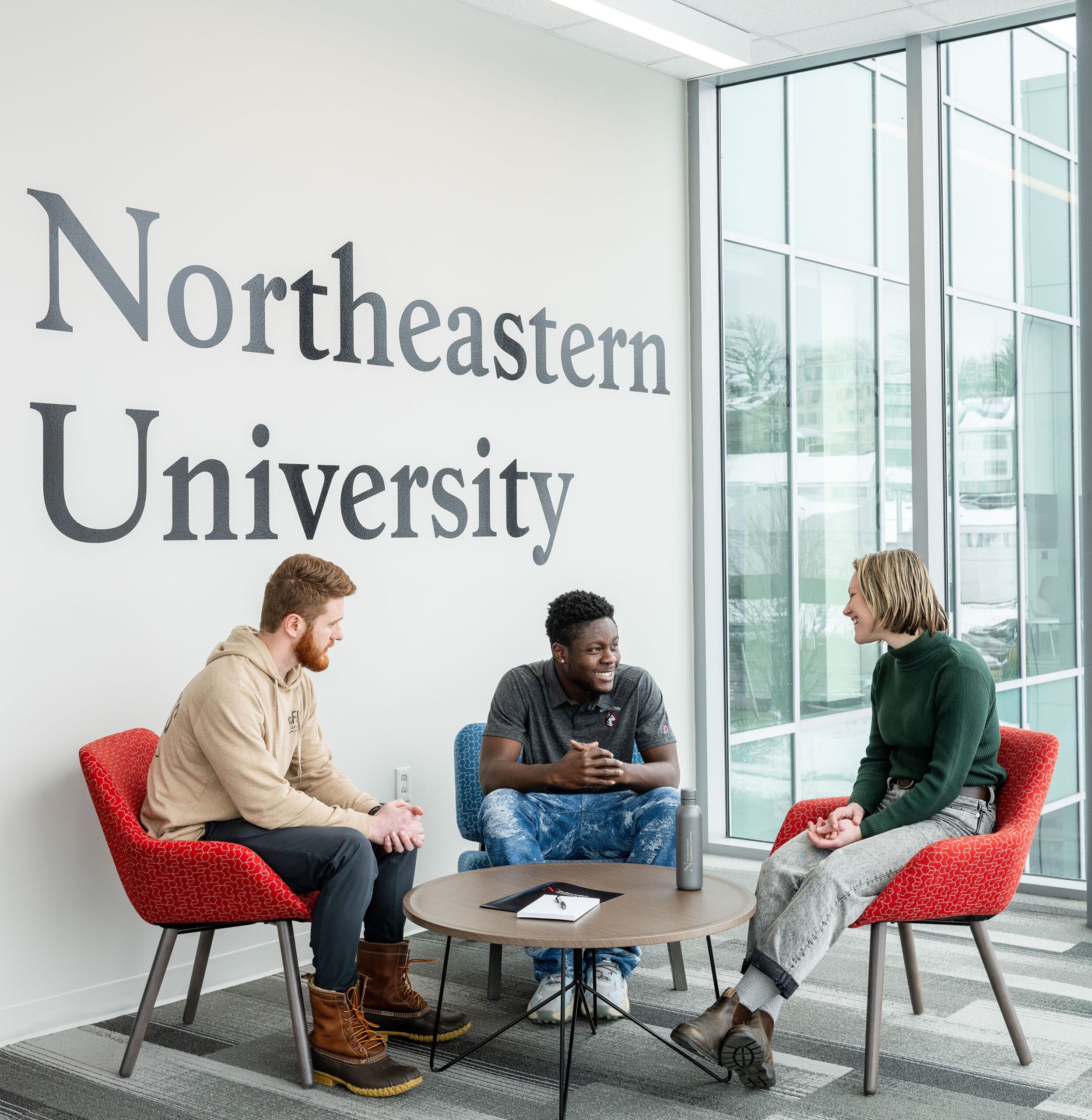
Jackson Laboratory software engineer levels-up his Career at the Roux Institute
As an employee at The Jackson Laboratory in Bar Harbor, Maine, senior scientific software engineer Alexander Berger was well aware of the Roux Institute at Northeastern University. The Jackson Laboratory, known as JAX, is a founding partner of the institute, and the two collaborate frequently on research and custom learning courses.
So when Berger considered going back to school to earn his master’s degree in computer science, the Roux Institute felt like the obvious choice. “I realized that there was probably never going to be another time in my life where I would have this much support in getting my degree,” Berger says, referring to the scholarship he received from the Alfond Scholars Initiative and the financial support he received from JAX.
Born in New York City and raised in Tarrytown, New York, Berger built his connection with Maine during his summers, vacationing here as a child and working as a camp counselor at Nichols Day Camp in Blue Hill as a teenager. During college at CUNY New York City College of Technology, Berger completed an internship at JAX, and after graduation he was hired to a full-time position.
At JAX, Berger helps to engineer software systems for lab research. This involves building new software systems to support emerging research, as well as re-engineering code that researchers have written in the lab, scaling and refining it into programs that can support users. “I’m someone who gets excited about doing and learning new things, so I definitely don’t get bored here. There’s always a mountain of stuff to learn and do.”
Everything I was doing at [the Roux Institute], I could immediately take back to work and translate it into the real world, learn more, and then bring it back to class again.

ALEXANDER BERGER
Master's of Computer Science Graduate
Immersing himself in computer science both at work and in school ended up being extremely convenient for Berger. “I’m really thankful that I had the opportunity to do both at once, because I feel like I was able to get more from it,” Berger said. “Everything I was doing at school, I could immediately take back to work and translate it into the real world, learn more, and then bring it back to class again.”
In fact, one class project even got him an author credit in a research paper. Berger brought in a project that JAX was doing in collaboration with Baylor University to work on in his database class. Once complete, he handed the work back to Baylor, where a student expanded upon it and eventually published a paper, with Berger listed as a co-author.
It’s this type of collaboration that really excites Berger. To him, computer science is all about community, and taking classes at the Roux Institute has helped him expand his network of people who share his passions. “A project will die unless it’s engaging a wider community,” Berger explains. “After many years as a software engineer, I’ve gained this understanding that it’s not just about these technical subjects. It’s about building a base of people that engage with each other and that enjoy doing the work.” Berger is putting this sentiment into practice as he works on his master’s project, which involves taking a JAX project and turning it into a learning framework that Roux professors can teach in class.
Berger was excited to come to Portland in June to walk at his graduation. Living over 90 minutes away from the Roux’s campus while working full time, he has relied on the institute’s online and hybrid class schedule to balance both. His advice for other full-time workers thinking about going back to school? “Ease into it,” he says. “And if you can apply work from your job into your class, do that.”
